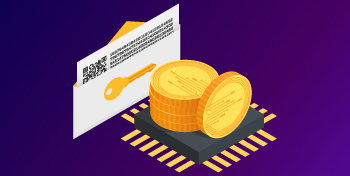The head of cryptocurrency Department at VISA Key Sheffield claims that central banks cannot issue their own digital currency for consumers.
Interesting statement made by VISA Sheffield published his thoughts in 14 Twits trying to answer the question on what central banks think about CBDC. The expert proposed two different answers,
“CBDC is usually taken as ‘digital money’, that means it is the direct central bank obligation, which can be held by companies and users just like they do it with physical money unlike the ‘digital deposits’ that represent obligations of commercial banks. Cash money is an extremely successful consumer-focused financial product proposed by central banks as physical money guaranteeing confidence, anonymity, offline-payments and instant account”
At the same time Sheffield notes that most users know the way cash money comes from banks but they don’t understand the difference between central bank and commercial. For example, when they get money out of the ATM they convert commercial bank’s obligation into the one that belongs to central bank. Then Sheffield asks, “If central bank starts to issue digital money, then how it will explain its consumers why CBDC differs from digital deposits they now keep in commercial banks?”
Indeed, once CBDC do not let users make something they can easily do with any usual payment application tied to their digital deposit kept in some commercial bank, it would be almost impossible to get the difference. In other words, CBDC is risking to compete directly with commercial banks transferring the deposits of the accounts’ holders to private digital wallets.»
At this stage, as Sheffield supposes, CBDC can only become an infrastructure based on digital wallets released by fintech-companies which would enable consumers and enterprises to keep and trade central bank obligations domestically and abroad.»This means that central banks would sell only the infrastructure while the wallets would be produced by commercial banks. Thus, the Chinese digital currency that is already being tested is based on this dichotomy. As a result, consumers will have no direct interaction with central bank since they will have only fintech-wallets they can choose depending on brand and technical specifications. Central banks and their obligations
“If central bank decides to offer consumers a digital wallet directly, both the bank and CBDC should become a brand for households, but such approach will bring too many operational problems”. It is worth saying that VISA seems to be working at something similar and therefore it may become the first major company that would release a fintech-wallet just like it was described by Sheffield.
The fact that he is the head of VISA cryptocurrency department makes it even more possible, and considering that this is the way digital currency is being developed in China, the dichotomy can become the main peculiarity of western digital coins as well.


